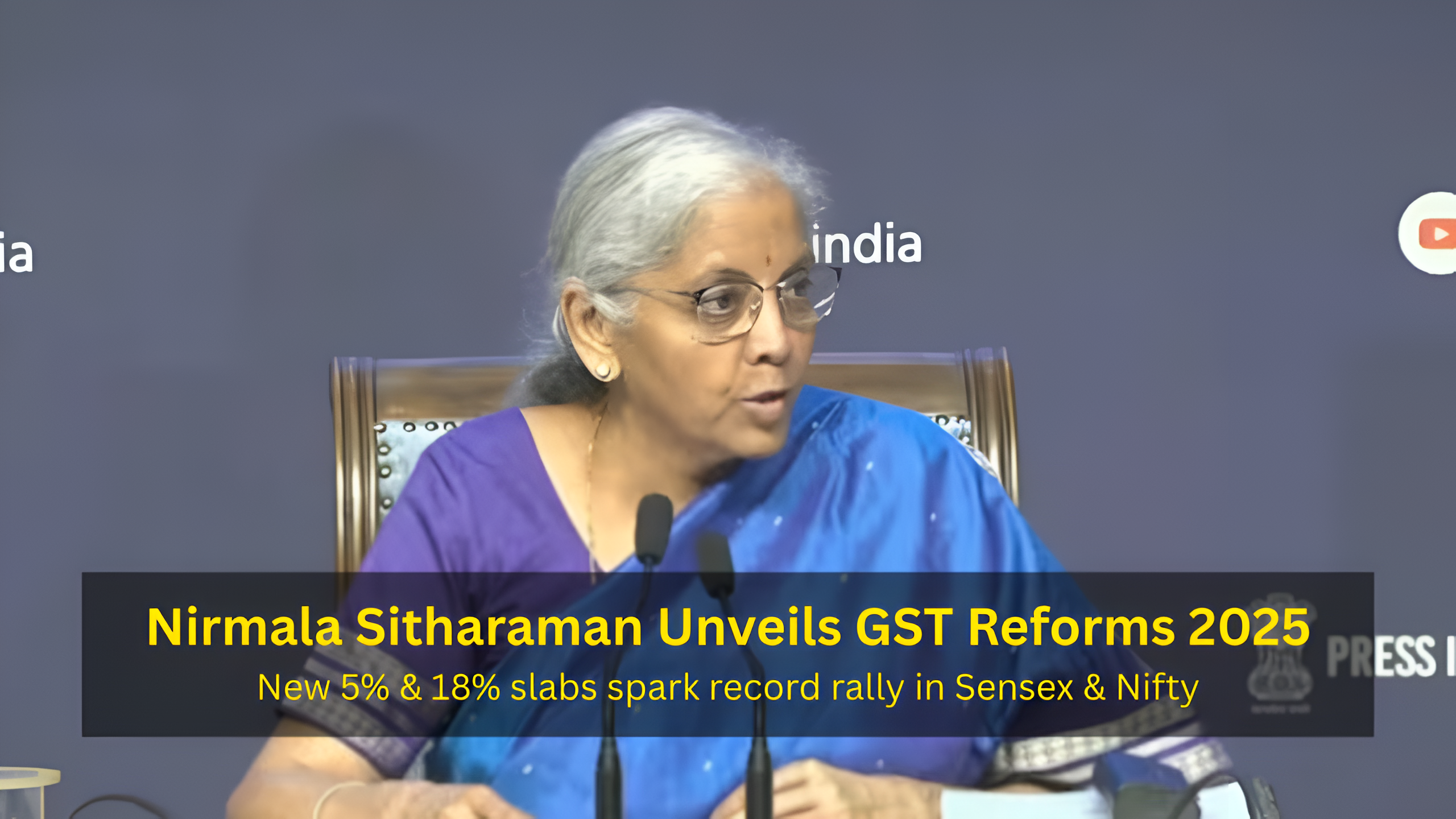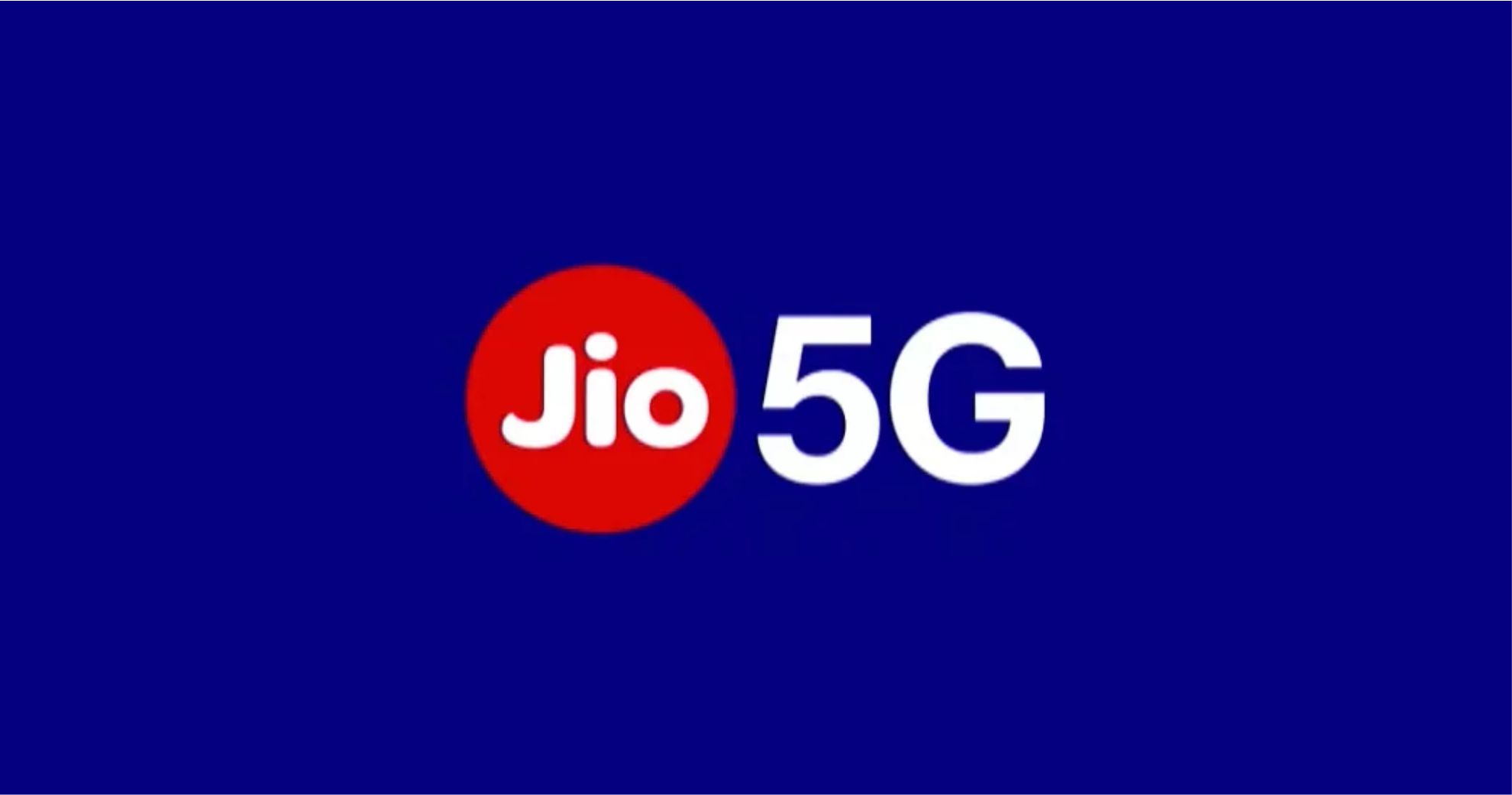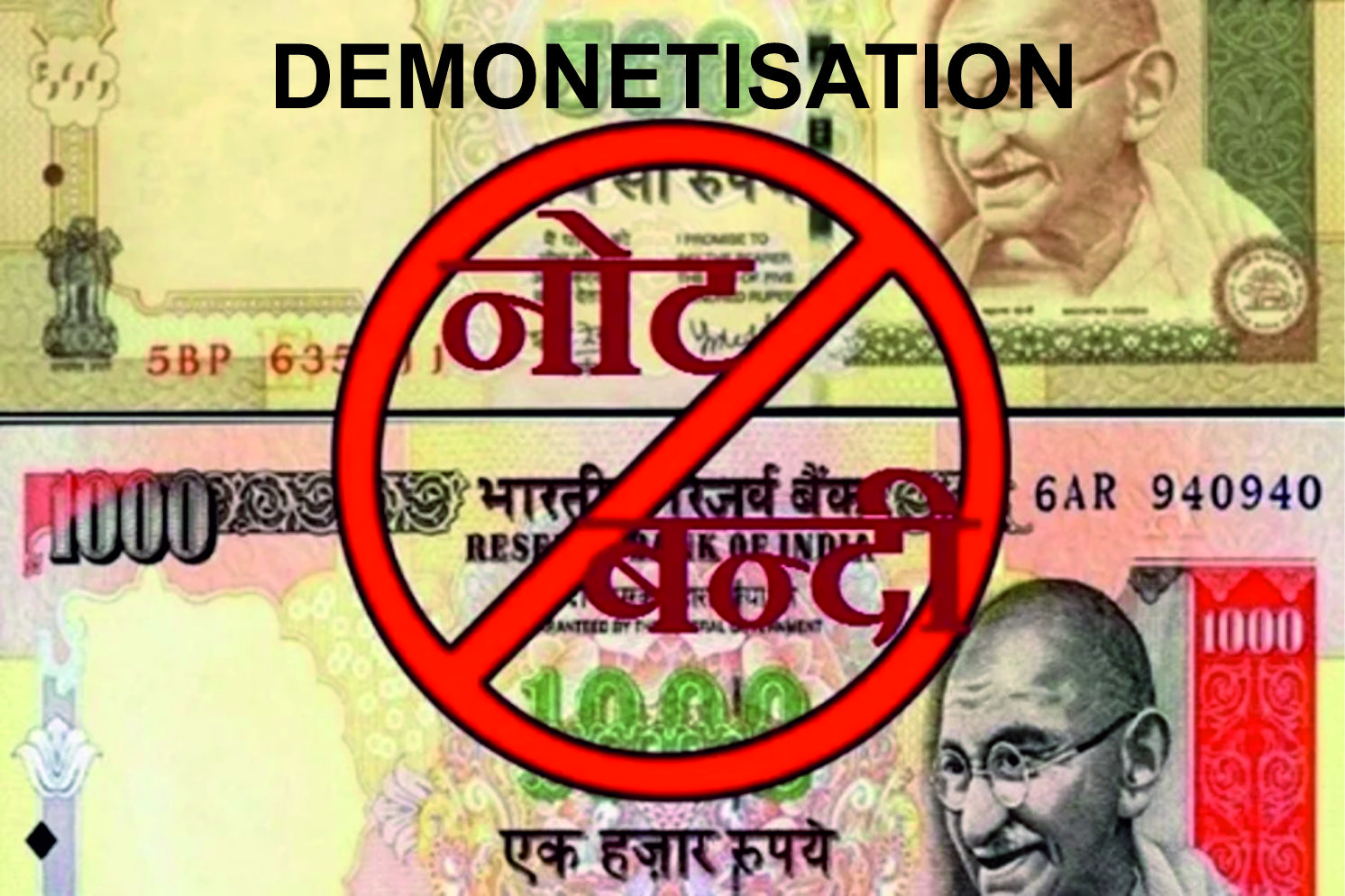GST Reforms 2025: Nirmala Sitharaman’s Rate Cuts Spark Market Rally

A Landmark Step in India’s Economic Journey
In a major reform for India’s tax landscape, Finance Minister Nirmala Sitharaman announced sweeping GST Reforms 2025, streamlining the Goods and Services Tax (GST) into two simplified slabs of 5% and 18%. The GST Council also approved exempting individual health insurance policies from GST, a move expected to ease household financial burdens and encourage insurance adoption.
Effective from mid-September 2025, the reforms have already set off a bullish rally in Indian stock markets. The BSE Sensex surged past 80,700, while the Nifty 50 crossed 24,850, hitting record highs.
Key Highlights of GST Reforms 2025
-
Simplified GST Slabs: Consolidation into two rates – 5% and 18%.
-
Health Insurance Exempted: Individual health insurance policies made GST-free.
-
Inverted Duty Structure Fixes: Adjustments to reduce costs for manufacturers.
-
Lower Tax on Essentials: Relief on common goods to spur consumer spending.
-
Effective Date: Mid-September 2025.
-
Immediate Market Impact: FMCG, retail, auto, and consumer durables sectors led the rally.
Market and Industry Reactions
Economists and business leaders are calling this reform a game-changer. Analysts expect the new GST structure to:
-
Boost Consumer Spending: Lower taxes and reduced healthcare costs free up disposable income.
-
Enhance Compliance: A transparent, simpler regime minimizes disputes and improves adherence.
-
Attract Global Investors: The reforms reinforce India’s image as a stable and pro-business market.
“The GST rate changes, along with RBI’s rate cuts, income tax rebates and easing inflation, act as key levers for a consumption uptick in the economy,” said Garima Kapoor, Economist and Executive Vice President at Elara Capital.
Immediate Market Surge
Investor optimism was clear as equity markets responded strongly.
-
Sensex: Crossed 80,700, up over 500 points.
-
Nifty 50: Reached 24,850, marking an all-time high.
-
Top Gainers: FMCG, auto, and consumer durables companies surged on expectations of higher demand.
What It Means for Businesses and Consumers
With the rollout set for September, businesses are revisiting pricing strategies, supply chains, and compliance systems. Consumers, on the other hand, can expect:
-
Lower Prices on daily-use goods.
-
No GST on health insurance, making coverage more affordable.
-
Stronger Growth Outlook, as higher consumption drives India’s GDP.
Why These Reforms Matter
The GST reforms address long-standing challenges like inverted duty structures and high consumer taxes while also prioritizing healthcare affordability. By simplifying taxation, the government is creating a more competitive environment for businesses and boosting India’s global investment appeal.
As India prepares for implementation in mid-September 2025, these reforms are expected to drive sustainable growth, strengthen the ease of doing business, and reshape India’s economic landscape for years to come.



 204
204

 The BharatBiz
The BharatBiz
 16
16

